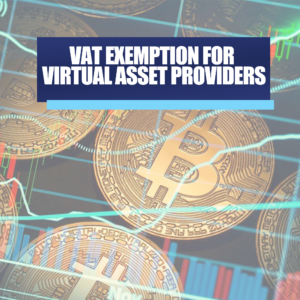The UAE Ministry of Finance has provided clarity on the taxable status of UAE Free Zone Persons. Qualifying Free Zone Persons (QFZP) automatically benefit from the 0% Free Zone Corporate Tax with their Qualifying Income if they meet the specific criteria of having and maintaining an Adequate Substance in a UAE Free Zone by carrying out business activities within the Free Zone.
To meet the criteria of an Adequate Substance in a UAE Free Zone the QFZP shall undertake its core income-generating activities in a Free Zone and shall have adequate assets, an adequate number of qualified employees and incur an adequate amount of operating expenditures.
The activities can be outsourced to a related party or a third party in a Free Zone.The definition of “adequate” is to be clarified. Yet “Adequate” will be measured for QFZPs with regards to their core activities in the Free Zone in respect to their business size and revenue within the Free Zone. If in such case the number of employees, assets, and expenditures do not meet the realistic (usual) amount needed, it will not be seen as adequate. Such case my be if the QFZP is only set up to avoid taxation.
When the QFZP has an Adequate Substance the Qualifying Income (0 % CT) will be:
- Income derived from transactions with other Free Zone Persons, except for income derived from Excluded Activities
- QFZP needs to be the Beneficial Recipient (right to use and enjoy the service or the good and does not have a contractual or legal obligation to pass such service or good to another person) of the relevant services or goods.
- Income derived from transactions with a Non-Free Zone Person, but only in respect of Qualifying Activities that are not excluded Activities.
- Any other income provided that the QFZP satisfies the de minimis requirements
The Non-qualifying Revenue derived by the QFZP in a Tax Period does not exceed 5 % or AED 5 million of the total revenue of the QFZP in that period. Exceeding the de minimis requirement leads to a full taxation of the QFZP with all its income ( 9 % CT).
Excluded Activities – which fall under the CT regime of 9 % – are:
Banking, Insurance, Finance and leasing (if subject to the regulatory oversight of the competent authority in the UAE)
Ownership or exploitation of immovable property
Ownership or exploitation of intellectual property assets
Transactions with natural persons that do not fall under qualifying activities.
Ancillary activities
Furthermore, Qualifying Income shall not include income attributable to a Domestic Permanent Establishment (PE) or a foreign PE. Such Income will be considered taxable under the CT regime. The income attributable to a domestic PE or a foreign PE of a QFZP for a Tax Period is the Taxable Income of any such establishment for that period calculated as if the establishment was a separate and independent Person that is a Related Party of the QFZP. The same applies to income attributable to immovable property located in a Free Zone.




